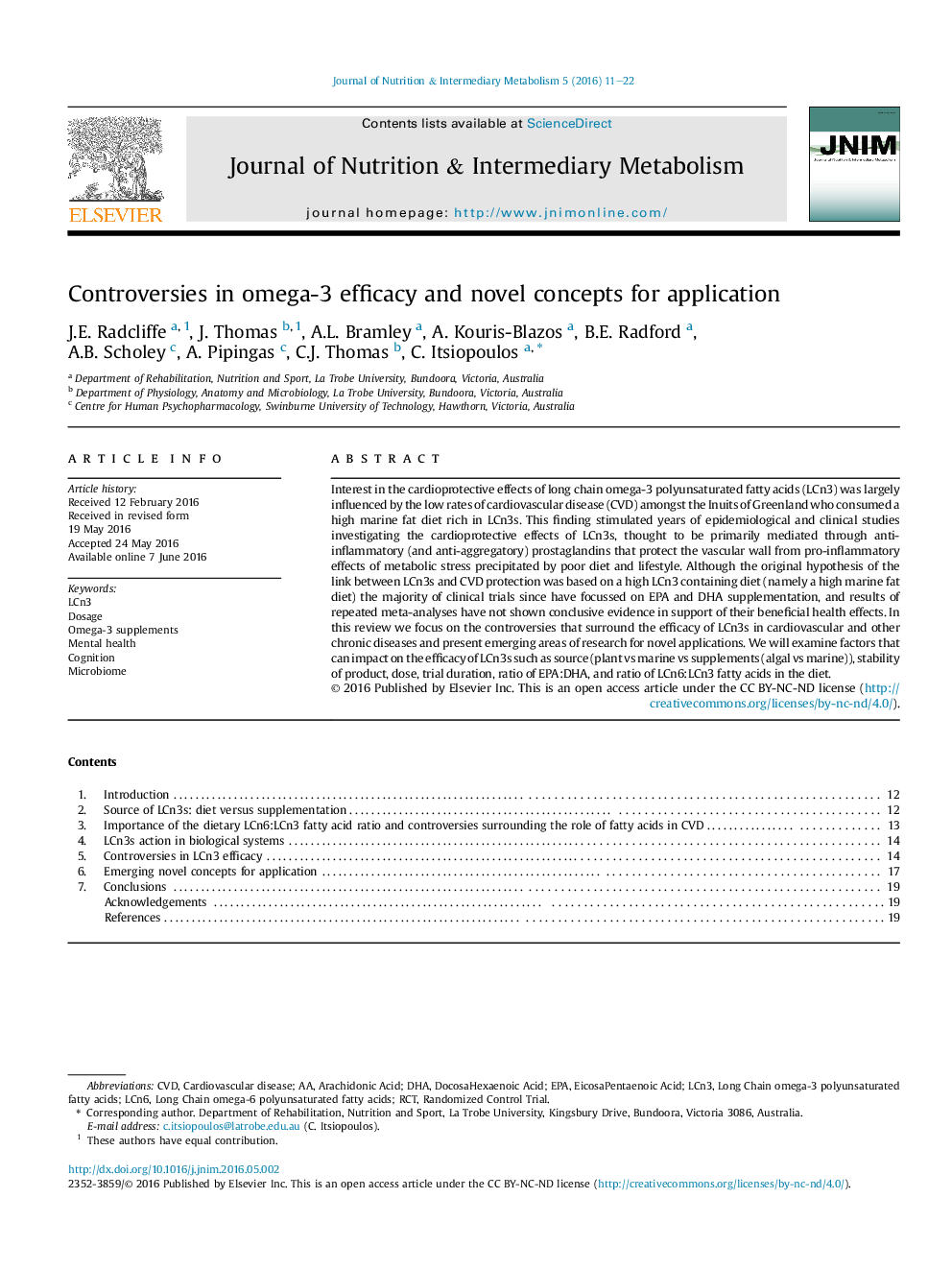| Article ID | Journal | Published Year | Pages | File Type |
|---|---|---|---|---|
| 2688630 | Journal of Nutrition & Intermediary Metabolism | 2016 | 12 Pages |
•Dose and intervention duration are key to efficacy of LCn3s in chronic disease.•LCn3 supplement controversies surround stability, biomarkers and baseline levels.•Balance of LCn6:LCn3 towards unity in the diet is important for efficacy.•LCn3 status is a modifiable risk factor for mood dysregulation and cognitive decline.•Emerging evidence suggests LCn3s improve gut health and benefit in liver disease.
Interest in the cardioprotective effects of long chain omega-3 polyunsaturated fatty acids (LCn3) was largely influenced by the low rates of cardiovascular disease (CVD) amongst the Inuits of Greenland who consumed a high marine fat diet rich in LCn3s. This finding stimulated years of epidemiological and clinical studies investigating the cardioprotective effects of LCn3s, thought to be primarily mediated through anti-inflammatory (and anti-aggregatory) prostaglandins that protect the vascular wall from pro-inflammatory effects of metabolic stress precipitated by poor diet and lifestyle. Although the original hypothesis of the link between LCn3s and CVD protection was based on a high LCn3 containing diet (namely a high marine fat diet) the majority of clinical trials since have focussed on EPA and DHA supplementation, and results of repeated meta-analyses have not shown conclusive evidence in support of their beneficial health effects. In this review we focus on the controversies that surround the efficacy of LCn3s in cardiovascular and other chronic diseases and present emerging areas of research for novel applications. We will examine factors that can impact on the efficacy of LCn3s such as source (plant vs marine vs supplements (algal vs marine)), stability of product, dose, trial duration, ratio of EPA:DHA, and ratio of LCn6:LCn3 fatty acids in the diet.
